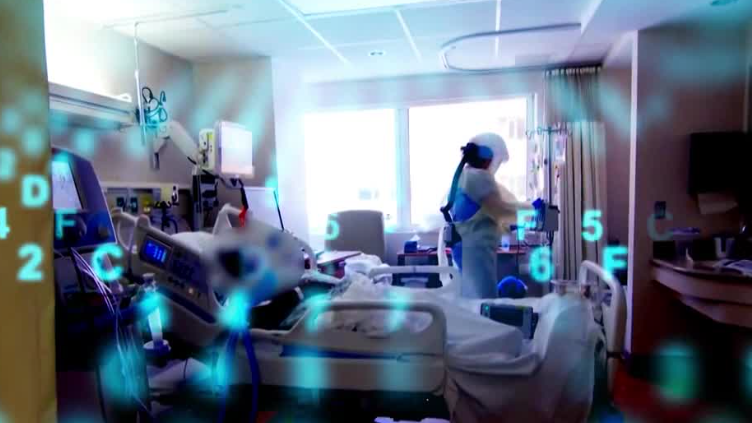AI technology giving heart failure patients better care, more access to doctors

Revolutionary technology powered by artificial intelligence is giving heart failure patients better care and more access to doctors and the therapies that they need.The technology is helping doctors, clinicians and patients at the Christ Hospital Health Network.The Christ Health Network was the first in the country involved in this partnership with medical device company, Ancora Heart and Egnite, a leading cardiovascular care digital health company, for a trial of its AI technology.The new tool is designed to deliver innovative, potentially lifesaving therapies to patients who are experiencing heart failure, faster than ever before.”A.I. has a lot of different connotations to different people, and some of them are negative, but this is a hugely positive application of artificial intelligence to help look through medical records and more than that, to integrate what have been traditionally different silos of medical information like your electronic health records,” chairman of the Christ Hospital, Heart and Vascular Institute Dean Kereiakes said.Kereiakes has been using the technology for about a year, getting patients into clinical research trials.Before this technology, clinicians like Emma Ries had to screen patients manually to find viable candidates for clinical trials.”When I was looking through every heart failure doctor’s schedule, I would look all day and maybe find one potential, maybe find none,” Ries said. “It was not very productive.”Now, Ries uses the tool to narrow down patient populations based on criteria for the studies to find patients that might otherwise be missed.”Maybe they just see a general cardiologist and they have heart failure, and that cardiologist isn’t thinking about research necessarily, this is a good way to find those patients,” Ries said.AI-powered predictive algorithms automatically cross-reference patient characteristics with screening guidelines to identify patients who qualify for different therapies, ranging from medications to heart valve interventions and more.Kereiakes said screening patients for cardio care research doesn’t even scratch the surface of the technology’s application.”Diabetes, same thing. We can go through our database and we can see who’s well-controlled, who’s not well-controlled, what medications they’re on. High blood pressure, the same thing,” Kereiakes said.As a hospital that participates in FDA approval testing, the Christ Health Network is the first site to use the trial accelerator AI technology.The technology will roll out at other health care sites in the near future.
Revolutionary technology powered by artificial intelligence is giving heart failure patients better care and more access to doctors and the therapies that they need.
The technology is helping doctors, clinicians and patients at the Christ Hospital Health Network.
The Christ Health Network was the first in the country involved in this partnership with medical device company, Ancora Heart and Egnite, a leading cardiovascular care digital health company, for a trial of its AI technology.
The new tool is designed to deliver innovative, potentially lifesaving therapies to patients who are experiencing heart failure, faster than ever before.
“A.I. has a lot of different connotations to different people, and some of them are negative, but this is a hugely positive application of artificial intelligence to help look through medical records and more than that, to integrate what have been traditionally different silos of medical information like your electronic health records,” chairman of the Christ Hospital, Heart and Vascular Institute Dean Kereiakes said.
Kereiakes has been using the technology for about a year, getting patients into clinical research trials.
Before this technology, clinicians like Emma Ries had to screen patients manually to find viable candidates for clinical trials.
“When I was looking through every heart failure doctor’s schedule, I would look all day and maybe find one potential, maybe find none,” Ries said. “It was not very productive.”
Now, Ries uses the tool to narrow down patient populations based on criteria for the studies to find patients that might otherwise be missed.
“Maybe they just see a general cardiologist and they have heart failure, and that cardiologist isn’t thinking about research necessarily, this is a good way to find those patients,” Ries said.
AI-powered predictive algorithms automatically cross-reference patient characteristics with screening guidelines to identify patients who qualify for different therapies, ranging from medications to heart valve interventions and more.
Kereiakes said screening patients for cardio care research doesn’t even scratch the surface of the technology’s application.
“Diabetes, same thing. We can go through our database and we can see who’s well-controlled, who’s not well-controlled, what medications they’re on. High blood pressure, the same thing,” Kereiakes said.
As a hospital that participates in FDA approval testing, the Christ Health Network is the first site to use the trial accelerator AI technology.
The technology will roll out at other health care sites in the near future.



